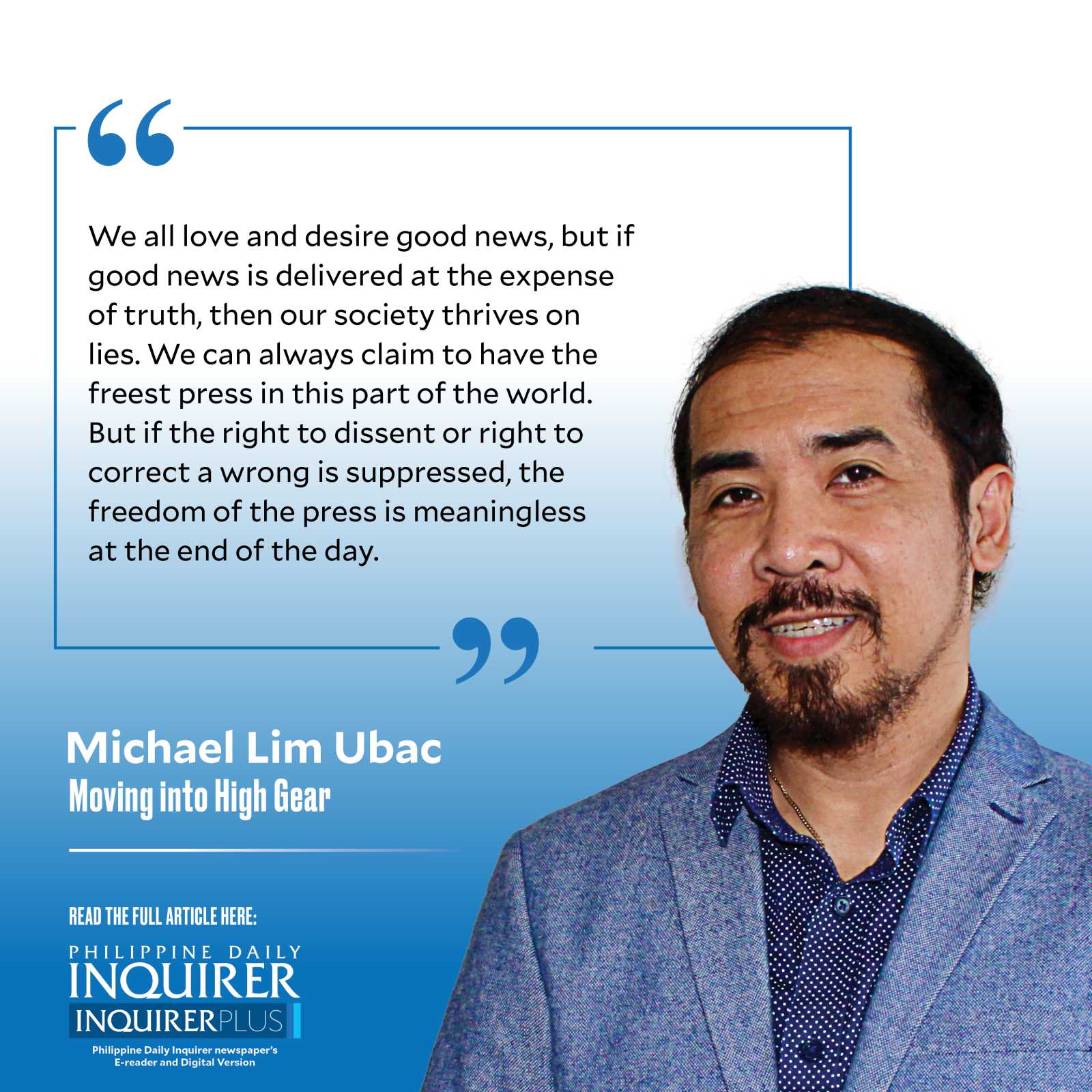Free press doesn’t exist in a vacuum

Although it considers Philippine democracy as “partly free,” Freedom House has continued to recognize the vibrancy of Philippine media.
Freedom House assesses the degree of political freedoms and civil liberties in every country by coming up with the annual Freedom in the World report. In 2023, the Philippines scored 58 out of 100 in political rights and civil liberties.
Intriguingly, the report placed “freedom of expression and belief” first among the four indicators to measure the state of a country’s civil liberties. The vibrant exercise of freedom of expression among Filipinos is a result of a clear constitutional guarantee for it.
“The [C]onstitution provides for freedoms of expression and the press, and private media are vibrant and outspoken,” Freedom House said. (The full report can be found here: http://tinyurl.com/yckcfxht.) It pointed out that “The ability of journalists to report freely on matters of public interest is a crucial indicator of democracy.”
Still, the Philippines earned a low score (1/4) because it “remains one of the most dangerous places in the world for journalists.” Many journalists regularly experience physical attacks, threats, smear campaigns, Red-tagging, and distributed denial-of-service.
Bill of Rights. The freedom of the press is a part of the broader freedom of speech and expression, as well as the rights of peaceful assembly and petition granted to every Filipino citizen.
Section 4, Article III (Bill of Rights) of the 1987 Constitution enshrines this foundational principle, to wit, “No law shall be passed abridging the freedom of speech, of expression, or of the press, or the right of the people peaceably to assemble and petition the government for redress of grievances.” This provision is identical to the First Amendment of the United States Constitution.
One cannot enjoy free speech and freedom of expression (to express, to speak, and to be heard) without a free press or media to publish one’s ideas, thoughts, beliefs, and artistic expressions.
Similarly, a free press cannot be fully beneficial without the guarantee of freedom of speech and expression. For what will the press publish—propaganda and press releases? Can the good, beautiful, and sunny aspects of life overlook the fallenness of human nature? For sure, we all love and desire good news, but if good news is delivered at the expense of truth, then our society thrives on lies.
We can always claim to have the freest press in this part of the world. But if the right to dissent or right to correct a wrong is suppressed, the freedom of the press is meaningless at the end of the day. Under this regime, newspapers and media organizations are reduced to simply being bulletin boards of the lives and times of the high and mighty, purveyors of the whims and caprices of celebrities, and paid spaces for obituaries.
Therefore, a free press does not exist in a vacuum. To survive, it must complement and fight for the right to exercise other freedoms, particularly in countries with flawed democracies like ours.
Similarly, it is in the interest of the citizens to advocate for press freedom. Unwarranted constraints on the operations of a free press have a domino effect on the exercise of other freedoms, for they set the stage for the state’s right to limit the exercise of other freedoms and rights.
Whether the story is negative press for those who feel alluded to (or mentioned) merits only a secondary consideration. The higher interest of the public, which is the constitutional right of the people to know, is paramount because journalism’s first obligation is to the truth.
All these freedoms and rights are not absolute. The exercise of them must occur in a peaceful and lawful manner. Other limitations exist, such as laws on libel, slander, or sedition. Using the press to particularly vilify an identified individual through false, defamatory, and malicious statements does not have any constitutional protection. A journalist worth his or her salt should always get the other side—or all sides to any given story.
However, libel has been weaponized by many to suppress free speech and the freedom of the press. It hangs as a sword of Damocles over the legitimate exercise of dissent and criticism, exposing many journalists to harassment. The time has come to decriminalize libel. In many countries, libel has been decriminalized because civil penalties (fines instead of imprisonment) are now considered appropriate and commensurate for resolving libel or defamation cases.
Because the freedom of the press is inviolable, it is the duty of the government to ensure that it is always respected. The freedoms of speech, expression, and the press have a long history, and keeping them intact in our Constitution is crucial to the flourishing of democracy in the Philippines.
—————–
For comments: lim.mike04@gmail.com; @umichaell




















